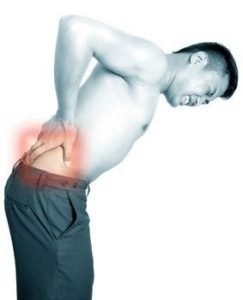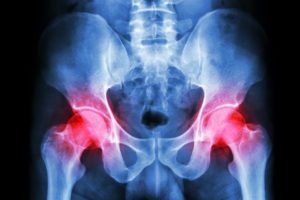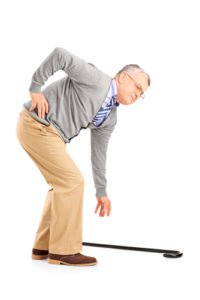Hip pain can be the result of a condition that has developed over time, such as bursitis and arthritis, or of a recent hip injury, such as a hip fracture or hip dislocation.

In some cases, and if not detected early, conditions such as hip bursitis and hip arthritis may create extreme bone and joint discomfort, making surgery a credible option for relieving your hip pain.
The most frequent causes for pain in the hip can be related to an orthopedic condition that has emerged over time.
Signs and symptoms of hip pain include:
- Joint pain felt in the front of the hip, along the outside of the hip, in the groin, or over the buttock area
- Discomfort and swelling in the thigh and knee
- Joint inflammation or hip muscle spasms, which may cause fluid accumulation in the hip joint
- Limping or the inability to walk comfortably on the affected side
- Inability to bend or rotate the hip
- Soreness and the feeling of the hip throbbing while sleeping or resting
- Fever, redness, and warmth—which are signs of infection
[blank h=”30″]
[/blank]

film x-ray human’s pelvis and hip joint
If you are experiencing any of the symptoms above, you may have a hip condition, such as hip osteoarthritis, hip bursitis, hip arthritis, or an injury like a fractured hip, dislocated hip, hip flexor injury, or labral tear.
Joint replacement
Severe joint pain is the most common reason patients undergo a joint replacement procedure.
 Whether your pain is a result of an old injury, of a degenerative condition like arthritis or osteoarthritis, or of a fracture, joint replacement procedures may be the recommended treatment option.
Whether your pain is a result of an old injury, of a degenerative condition like arthritis or osteoarthritis, or of a fracture, joint replacement procedures may be the recommended treatment option.
Nearly any joint in the body can be replaced with a fully functioning artificial implant, but the most common joint replacements are of the hip, knee, or shoulder.
You may be a candidate for a joint replacement surgery if you are experiencing any of the following symptoms:
- Severe joint pain
- Pain in the joint that keeps you awake at night
- Joint discomfort that prevents you from participating in recreational activities
- Joint pain that limits your ability to conduct necessary and daily functions, such as climbing stairs or standing up
- You have attempted more conservative treatment methods, such as exercise or therapy, without success
To consult with one of our joint replacement doctors, please call 17336601
